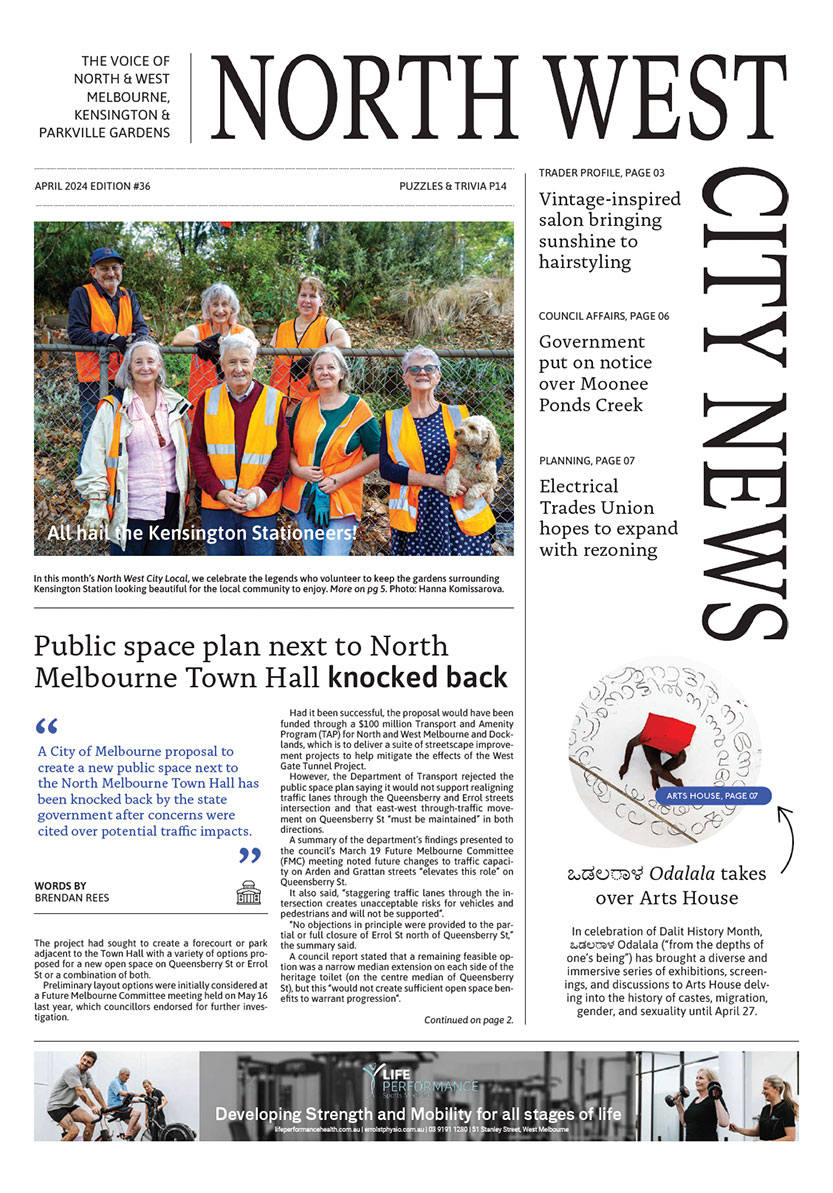Public housing residents take up health work
Public housing residents who were placed under a much-criticised hard lockdown in July last year are working as health concierges to help keep their communities safe.
Eighty-four residents are working as health concierges at the base of high-rise towers in Kensington, North Melbourne, Flemington, Carlton, Fitzroy, Collingwood and Footscray.
Thirty-three Alfred St – the biggest public housing building in North Melbourne – was locked down the longest during the hard lockdown.
Twenty-four-year-olds Abdiwasa (Abdi) Ismael and Ayoub Sudi have lived in the tower most of their lives. Abdi has lived there since he was seven, and Ayoub since he was nine.
They both now work as health concierges and said they have felt empowered by working with and for their community.
“I feel like my favourite part of the day would be if I help a resident who I didn’t know, but I get to know them and they get to know me,” Ayoub said.
“They might come down with an unhappy face but leave with a happy face – that makes me happy, to get to know my community more.”
“And feeling like I can help fix people’s problems, before I didn’t feel that way.”
Ayoub said he already wanted to work in health. He had recently finished a course in laboratory technology when he took the role as a concierge and wished to get into vaccine-related work in the future.
But he also said one of the main reasons why he took the job was because of the experience of the hard lockdown.
“Once we were locked down, we felt helpless, powerless, you know?” he said.
Our words weren’t loud enough to reach the media and the government, so now at least we could help prevent something like that from happening if we support our community in the right way.
Cohealth and the Department of Health and Human Services (DHHS) established the program in an aim to incorporate cultural approaches to health.
Abdi and Ayoub both speak multiple languages. Abdi can speak Somali and English, and Ayoub Ahmaric (Ethiopian), Arabic, Oromo and English. They can communicate properly with many residents for which English is not their first language.
The health concierge’s role is to monitor the health and wellbeing of residents moving in and out of the building, take temperatures, provide the latest health information and updates to restrictions in their own language, link people who have symptoms to local testing sites and support services and provide masks.
Abdi and Ayoub said they provide general support work – including taking forms to the housing office and making phone calls to other services – that many residents needed a long time ago and hope could continue to be provided after the pandemic.
“It’s similar to being a support worker but with health,” Abdi said.
“The residents want us to be here for even longer, not just for COVID. We help them a lot – before they had to call services and spent too much time waiting for help, they have English difficulties and all that.”
“Now, they have two community members stationed downstairs who are there to help them.”
In December, the Victorian Ombudsman Deborah Glass found the state government’s hard lock down on the nine public housing towers had breached human rights laws.
It was not the establishment of a lockdown as such that was found to be the problem, but its immediacy, lack of information and communication with residents and a heavy police presence.
“Many residents knew nothing of the lockdown or the reason for it when large numbers of police appeared on their estate that afternoon,” Ms Glass said.
“Some people were without food and medicines.”
“At the tower at 33 Alfred St … residents waited more than a week to be allowed outside under supervision to get fresh air.”
In a statement released after the Ombudsman’s findings were made public, Cohealth chief executive Nicole Batholomeusz said, “The Ombudsman’s report underscores what community health organisations have long known; that services and health responses must incorporate shared community expertise and knowledge.” •

Jo Ryan unveils Ordered Chaos at Blender Studios




 Download the Latest Edition
Download the Latest Edition